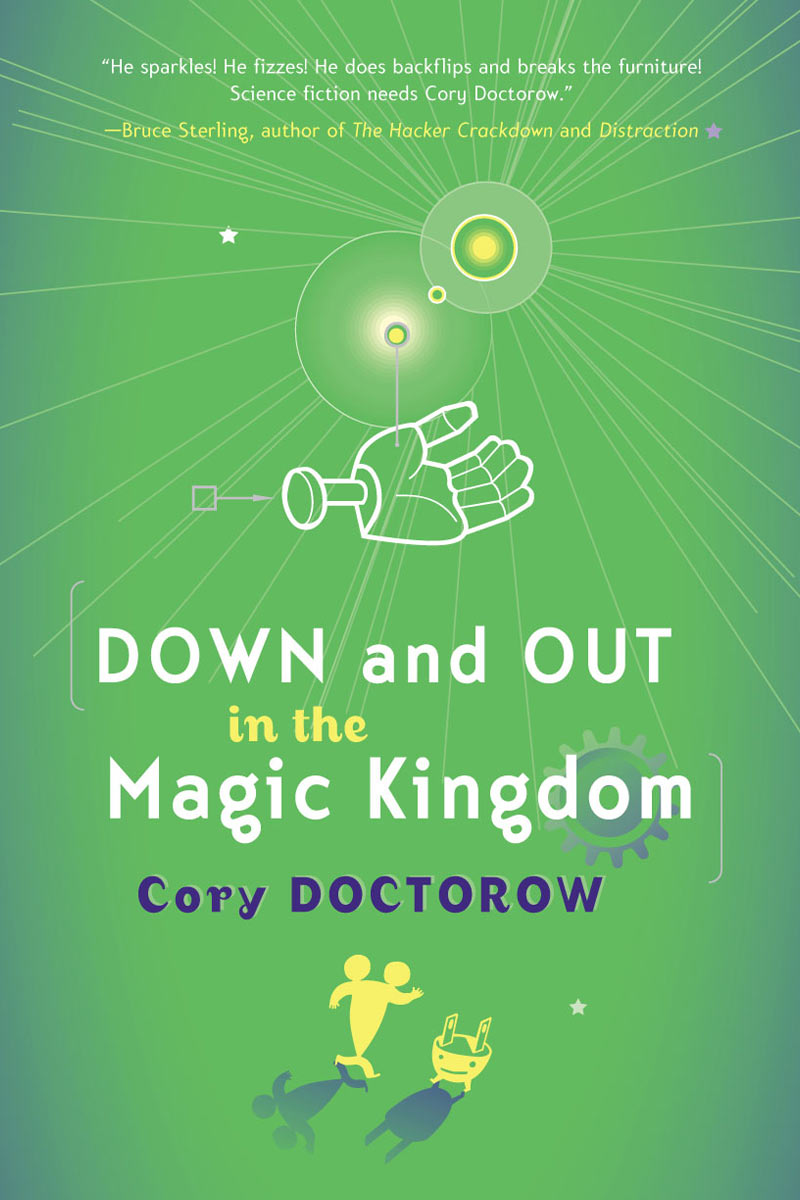What I like about Doctorow is that he possesses a skill few writers today, in an age when literary windbags are editorially indulged, possess: his tales are short, sweet, and get down to business. From the 50’s to the late 70’s, most of SF’s finest talents were forced by market-driven publishing conventions to keep their books in the 175-to-225-page range. And while any artist would chafe against such creative restrictions, these writers took lemons and made lemonade, training themselves in the craft of storytelling efficiency. Even today I find myself consistently impressed by how well short novels from that period by the likes of Anderson and Silverberg and others hold up, and I see Cory Doctorow as a new talent who has studied well and learned some valuable lessons at that school. Hopefully other newcomers will get the message that you don’t need 950 pages to get the job done.
SFReviews.net


























